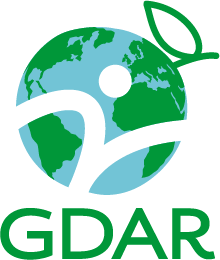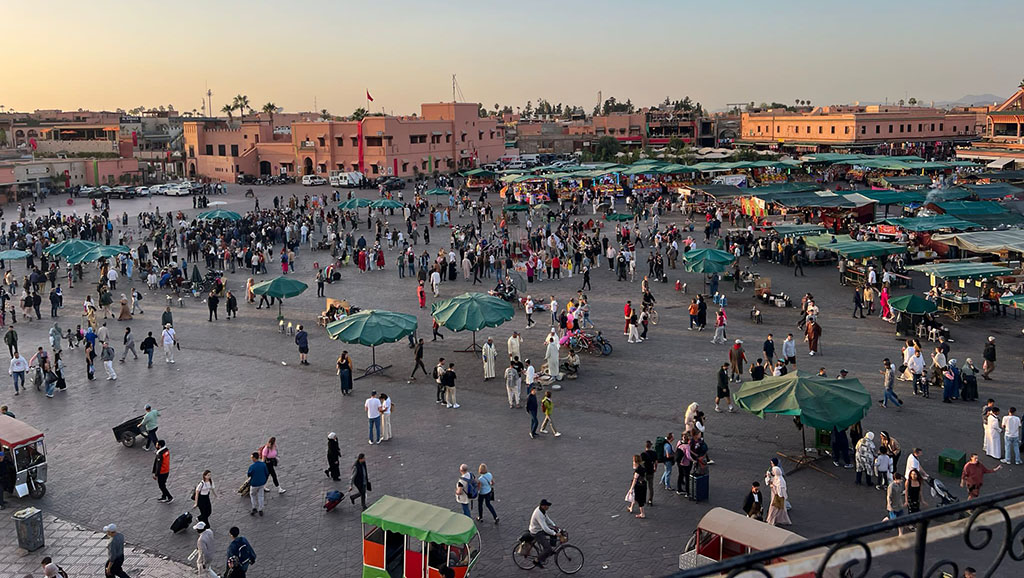Written by Lídia Morais
Between November 18 and 21, the GDAR team attended the 20th International Conference on Urban Health 2024 in Marrakech. The conference brought together experts from various parts of the world to discuss the impacts of the climate crisis on urban health and to promote strategies for resilience and sustainability.
GDAR made its presence felt through presentations by Waleska Caiaffa, Elis Borde, Lídia Morais, Erin Mathieu, Trish Muzenda, Lambed Tatah, and Nina Abrahams. Our PI, Tolu Oni, participated in several panels and discussions for UrbanBetter. We shared preliminary results from the working groups that form part of the project’s scope, including consultations with stakeholders, mapping the policy environment related to climate resilience, community-based system dynamics workshops for mapping community resilience strategies, and analyses of the food environment.
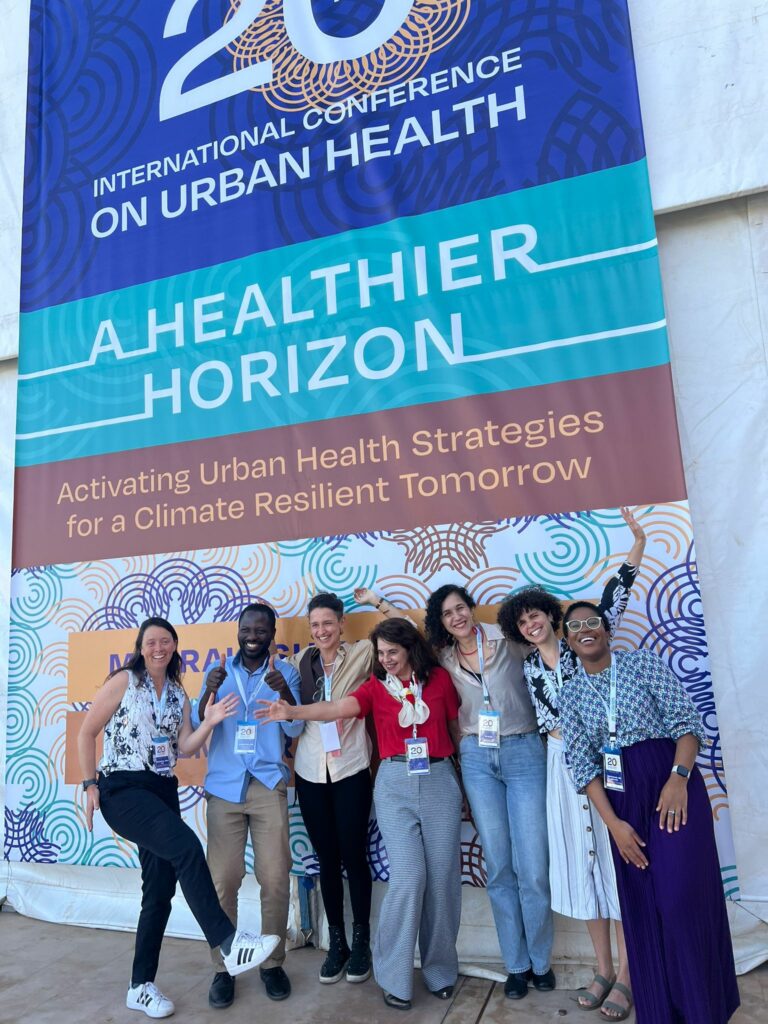
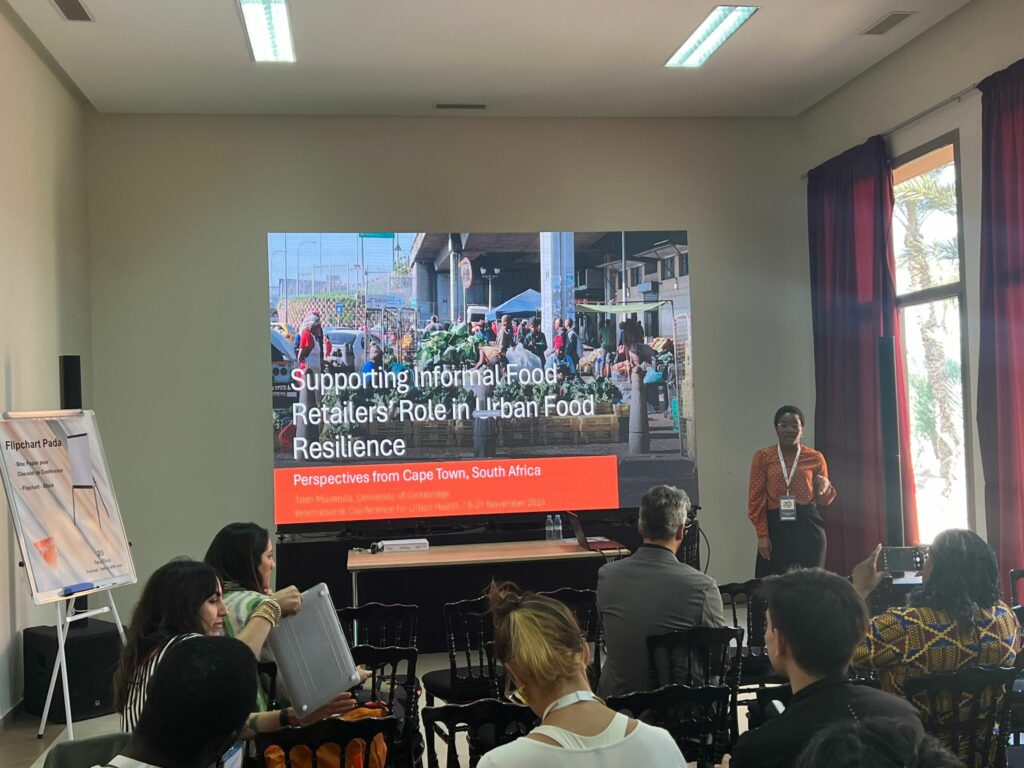
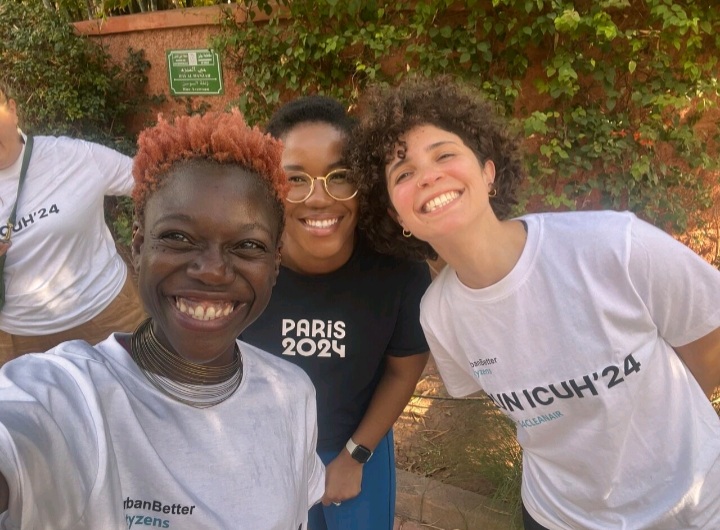
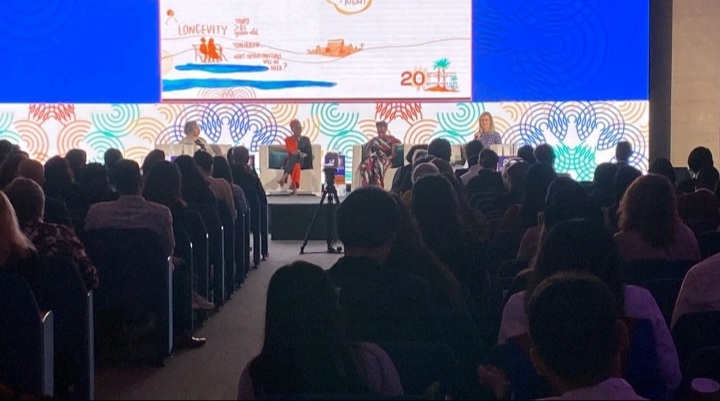
In addition to presenting our findings, we engaged in discussions with fellow researchers, activists, public officials, and members of international organizations on theoretical and practical approaches, methods and applications, challenges, and perspectives on urban health in the face of the climate crisis, as well as our role in this constantly changing world.
During a bike tour, we explored the Palmeraie neighborhood, observing native flora and visiting a public drinking water fountain available to passersby. Upon reaching the Medina, we experienced the bustling traffic of cars, bicycles, pedestrians, and donkeys all navigating the narrow and winding streets, a distinctive feature of the city.
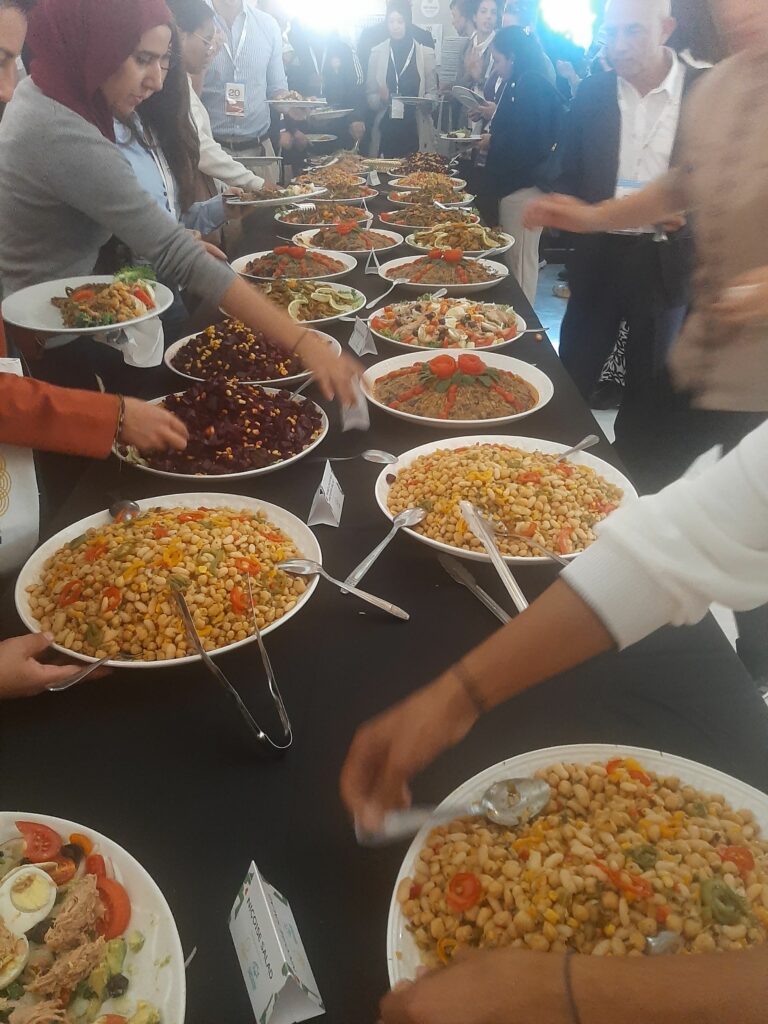
We also delighted in the local cuisine – tajines, couscous, olives and oils, nuts, dates, spices, mint, and the rich aromas of a culture steeped in history. The architecture left a lasting impression not only for its beauty and intricate details but also for its ancient strategies in preserving the microclimate, water storage, and circulation, as well as natural lighting and space optimization. The event itself was held at the Mohammed VI Museum of Water Civilization; also known as the Water Museum, it is dedicated to the ‘civilization of water’ and its technologies for water storage and utilization in a predominantly desert climate region.
For all of the above and far more than a blog can contain, participating at ICUH was a remarkable experience.
